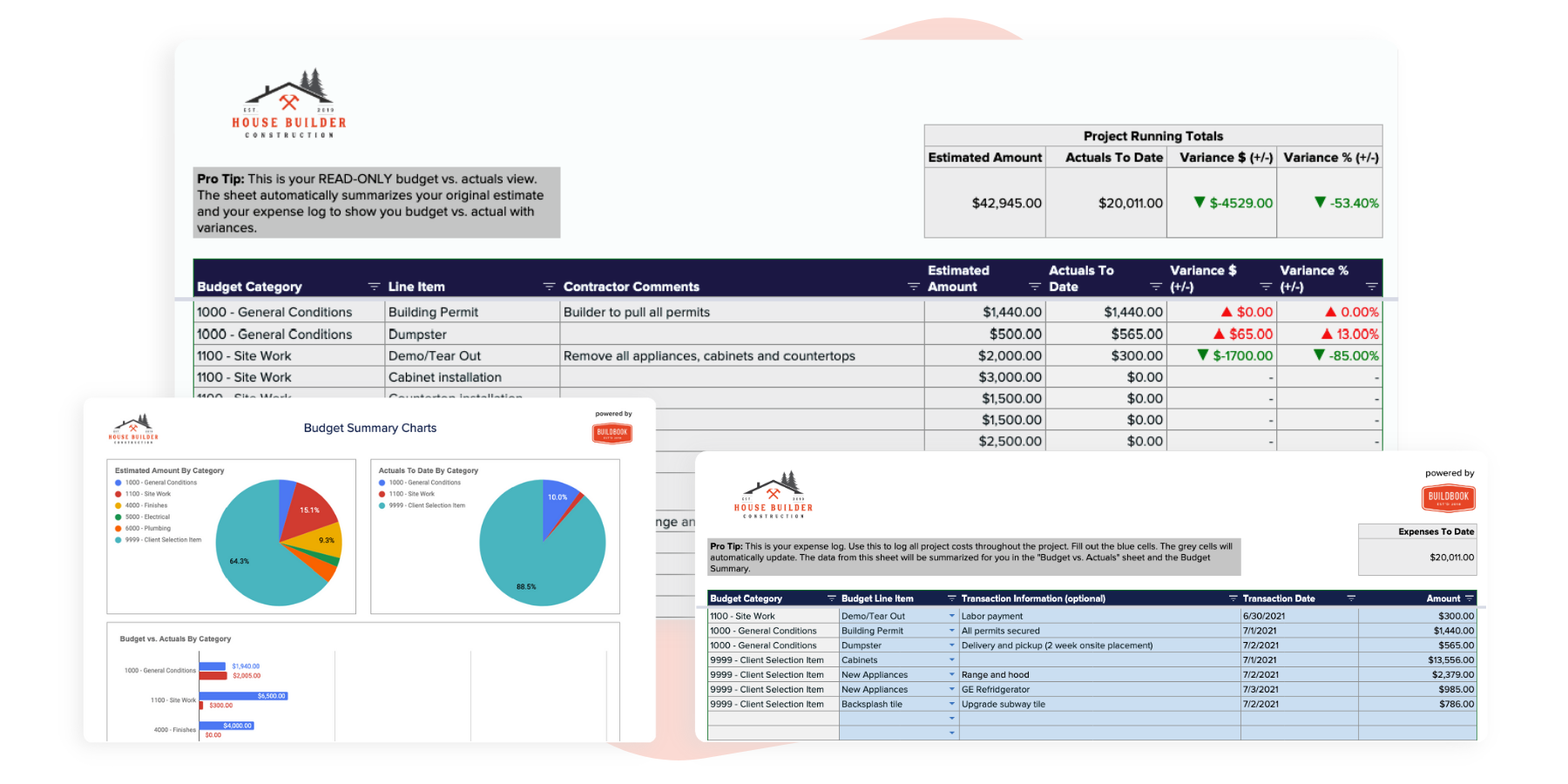Building a House Budget Template: A Comprehensive Guide
When it comes to building a house, one of the most crucial aspects to consider is the budget. Having a well-organized budget template can help you keep track of expenses, manage costs effectively, and ensure that your project stays within financial limits. In this guide, we will delve into the importance of a house budget template, how to create one, and provide tips for successfully managing your budget throughout the construction process.
What is a House Budget Template?

Image Source: smartsheet.com
A house budget template is a detailed financial plan that outlines all the expenses associated with building a house. It includes costs such as materials, labor, permits, fees, and any other expenses that may arise during the construction process. By creating a budget template, you can estimate the total cost of your project, allocate funds accordingly, and track your spending to avoid overspending.
The Purpose of a House Budget Template
The main purpose of a house budget template is to help you plan and manage your finances effectively throughout the construction process. By creating a detailed budget template, you can:

Image Source: smartsheet.com
– Estimate the total cost of your project
– Allocate funds for each phase of construction
– Track expenses and identify areas where costs can be reduced
– Ensure that your project stays within budget
– Avoid unexpected expenses and financial setbacks
Why You Need a House Budget Template
Building a house is a significant financial investment, and without a budget template, it can be easy to overspend or lose track of expenses. A budget template provides a roadmap for your project, helping you stay organized, make informed financial decisions, and ultimately save money. Additionally, a budget template can serve as a valuable tool for communicating with contractors, lenders, and other stakeholders involved in the construction process.
How to Create a House Budget Template

Image Source: archdesk.com
Creating a house budget template can seem like a daunting task, but with the right tools and guidance, it can be a straightforward process. Here are some steps to help you create a comprehensive budget template for your house construction project:
1. Estimate Your Total Project Cost
Start by estimating the total cost of your project, including materials, labor, permits, fees, and any other expenses. Research the current market prices for construction materials and labor in your area to get an accurate estimate.
2. Break Down Your Budget Into Phases

Image Source: website-files.com
Divide your budget into different phases of construction, such as site preparation, foundation, framing, roofing, plumbing, electrical, and finishing. Allocate funds for each phase based on your estimated costs.
3. Consider Contingency Funds
Include a contingency fund in your budget template to account for unexpected expenses or changes in the project. A general rule of thumb is to allocate 10-15% of your total budget for contingencies.
4. Track Your Expenses

Image Source: archdesk.com
As you start the construction process, track all your expenses in a detailed spreadsheet or budgeting software. Regularly update your budget template to reflect actual costs and adjust your allocations as needed.
5. Review and Revise Your Budget Regularly
Regularly review your budget template to ensure that you are staying on track with your spending. Revise your budget as necessary to accommodate any changes or unforeseen expenses that may arise during the construction process.
6. Communicate with Your Contractors

Image Source: smartsheet.com
Keep open communication with your contractors and subcontractors throughout the construction process. Inform them of your budget constraints and work together to find cost-effective solutions without compromising on quality.
7. Seek Professional Advice
If you are unsure about creating a budget template or managing your finances, consider seeking advice from a financial advisor or a construction consultant. They can provide valuable insights and recommendations to help you stay on budget.
8. Stay Organized and Stay Focused

Image Source: smartsheet.com
Maintaining a well-organized budget template and staying focused on your financial goals can help you successfully manage your house construction project. Keep all your financial documents in one place, stay disciplined with your spending, and make informed decisions to ensure that your project is completed within budget.
Tips for Successful Budget Management
Set Realistic Expectations: Be realistic about your budget and avoid unrealistic cost-saving measures that could compromise the quality of your project.
Compare Multiple Bids: Obtain multiple bids from contractors and suppliers to ensure that you are getting the best value for your money.
Use Energy-Efficient Materials: Invest in energy-efficient materials and appliances that can help you save money on utility bills in the long run.
Monitor Your Spending: Regularly monitor your spending and adjust your budget template as needed to avoid exceeding your financial limits.
Plan for Future Expenses: Consider future maintenance costs and expenses when creating your budget template to avoid financial surprises down the road.
Stay Flexible: Be prepared to make adjustments to your budget template as needed to accommodate changes in the project scope or unforeseen expenses.

Image Source: smartsheet.com
In conclusion, building a house budget template is an essential step in managing your finances effectively during the construction process. By creating a detailed budget template, tracking your expenses, and following the tips outlined in this guide, you can successfully complete your house construction project within budget and without financial stress. Remember to stay organized, communicate with your contractors, and make informed financial decisions to ensure a successful and cost-effective building experience.

Image Source: smartsheet.com